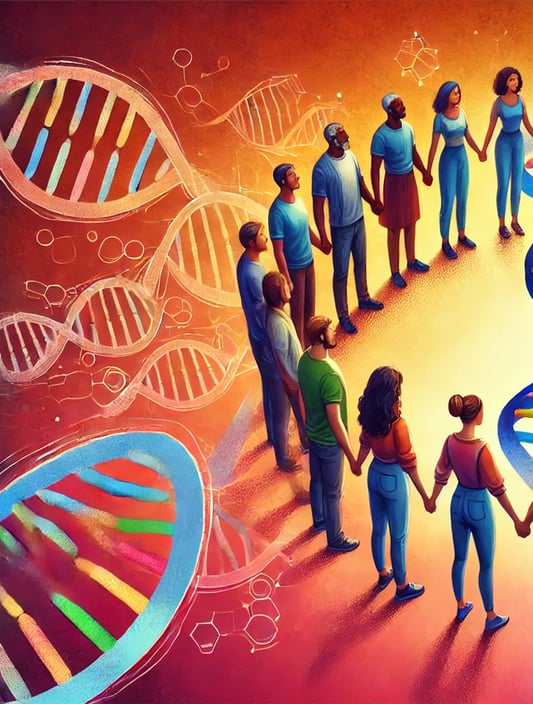Criteria Used by Genetic Counseling Programs to Evaluate Applicants
Discover the criteria genetic counseling programs use to evaluate applicants. Understand the essential qualifications and steps to succeed.
CAREER ADVICECAREER INFORMATION


What Are the Criteria Used by Genetic Counseling Programs to Evaluate Applicants?
Genetic counseling programs are designed to select individuals who demonstrate the potential to excel in this specialized field. Understanding the evaluation criteria can significantly enhance your chances of acceptance. This article delves into the essential qualifications and characteristics that genetic counseling programs look for in their applicants, providing you with a comprehensive guide to navigating the admissions process.
Applying to a genetic counseling program can be a daunting process, but knowing what these programs look for in candidates can give you a competitive edge. Genetic counseling programs evaluate applicants based on a combination of academic achievements, personal attributes, relevant experience, and the ability to handle the complexities of genetic information. This detailed guide will help you understand the specific criteria and how to meet them effectively.
Academic Excellence
A strong academic background is crucial for applicants. Programs typically look for high grades in relevant undergraduate courses, particularly in biology, genetics, psychology, and statistics. Demonstrating a solid foundation in these subjects indicates your ability to grasp complex genetic concepts and apply them in a counseling setting.
Prerequisite Coursework
Many programs require specific coursework to ensure that all applicants have a baseline knowledge essential for advanced studies in genetic counseling. Common prerequisites include molecular genetics, biochemistry, and human development. Check the requirements of each program you are applying to and make sure you have completed or are in the process of completing these courses.


Graduate Record Examination (GRE) Scores
Although some programs are moving away from requiring GRE scores, many still consider them an important aspect of the application. A strong GRE score can enhance your application by showcasing your analytical and critical thinking skills. Aim to achieve scores that meet or exceed the program’s average to strengthen your application.
Relevant Experience
Experience in genetics or counseling-related fields is highly valued. This can include volunteering, internships, or work experience in genetic counseling settings, laboratories, hospitals, or mental health services. Such experiences demonstrate your commitment to the field and provide a practical understanding of the work involved.


Personal Statement
Your personal statement is your opportunity to convey your passion for genetic counseling and explain why you are a good fit for the program. Highlight your academic journey, relevant experiences, and career aspirations. Be honest and reflective, and show how your background has prepared you for this career.
Letters of Recommendation
Strong letters of recommendation from professors, supervisors, or professional mentors who can speak to your abilities and potential are critical. Choose recommenders who know you well and can provide specific examples of your skills, work ethic, and suitability for a career in genetic counseling.


Interview Performance
The interview process is a crucial component of the application. It allows the admissions committee to assess your communication skills, empathy, and ability to think on your feet. Prepare by practicing common interview questions, understanding current issues in genetic counseling, and being able to discuss your experiences and motivation for entering the field.
Interpersonal Skills
Genetic counselors must possess excellent interpersonal skills, including empathy, active listening, and the ability to convey complex information clearly and compassionately. Programs assess these skills through your personal statement, interviews, and interactions with faculty and current students.


Research Experience
While not always required, research experience can enhance your application. Participation in genetic or psychological research projects demonstrates your ability to engage in scientific inquiry and contribute to the advancement of the field.
Understanding of the Profession
A thorough understanding of the genetic counseling profession is essential. This includes knowledge of the roles and responsibilities of genetic counselors, current trends and challenges in the field, and ethical considerations. Demonstrating this understanding in your application materials and interviews shows that you are well-prepared for the demands of the profession.
Commitment to Diversity and Inclusion
Programs value candidates who are committed to promoting diversity and inclusion within the field of genetic counseling. Highlight any experiences or initiatives that demonstrate your dedication to these principles and how you plan to contribute to a diverse and inclusive environment.


Successfully gaining admission to a genetic counseling program requires a well-rounded application that showcases your academic prowess, relevant experience, interpersonal skills, and understanding of the profession. By carefully preparing each component of your application and demonstrating your commitment to the field, you can enhance your chances of being accepted into the program of your choice.


